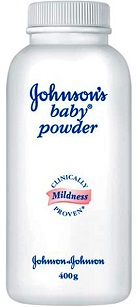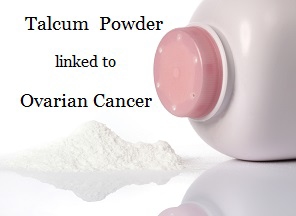 Johnson & Johnson faces criticism after employing a controversial bankruptcy maneuver to dodge tens of thousands of lawsuits linked to claims that J&J’s talc baby powder was contaminated with cancer-causing asbestos.
Johnson & Johnson faces criticism after employing a controversial bankruptcy maneuver to dodge tens of thousands of lawsuits linked to claims that J&J’s talc baby powder was contaminated with cancer-causing asbestos.Texas Two Step
Health products giant J&J used a quirk of Texas state law to spin off a new company called LTL. Then J&J dumped all of its asbestos-related liabilities — including the huge number of lawsuits — into the “new firm.”
Then, last week, LTL filed for bankruptcy in a federal court in Charlotte, N.C. The move was obviously made to limit efforts to recover damages for those who allege they were harmed by Johnson’s baby powder.
“Johnson & Johnson doesn’t have this liability anymore,” said Lindsey Simon, a bankruptcy expert at the University of Georgia School of Law. “They pushed all of it into the company they created just to file for bankruptcy.”
As a result, said Simon, “consumers can’t recover against a big solvent company. They have to recover against this smaller fictional company created [by Johnson & Johnson].”
The move sparked outrage from many lawmakers, plaintiffs’ attorneys, and consumer advocates.
“J&J knew asbestos laced some bottles, but kept it a secret for decades,” tweeted Rep. Katie Porter (D-Calif.) on Tuesday. “Tens of thousands of women with ovarian cancer are suing, and the company wants to shield its assets.”
In 2018, separate investigations by Reuters and The New York Times revealed documents showing Johnson & Johnson worried internally for decades that small amounts of asbestos lurked in its baby powder. But J&J did not tell regulators, though it has denied that claim.
J&J remains one of the wealthiest corporations in the world. It has more than $25 billion in cash reserves.
Johnson & Johnson claims the bankruptcy move legitimate
J&J CFO Joseph Wolk defended his company’s bankruptcy maneuver in a call with J&J investors this week. Mr. Wolk again said its talc baby powder products were safe. Those products were discontinued last year.
“There’s an established process that allows companies facing abusive tort systems to resolve claims in an efficient and equitable manner,” said Mr. Wolk.
$2 Billion for Baby Powder Lawsuits?
LTL, in a separate statement, said J&J had agreed to provide the new firm with $2 billion, along with other funds, for future payouts linked to baby powder asbestos claims.
Chief legal officer for LTL, John Kim, said, “We are confident all parties will be treated equitably during this process.”
However, Andy Birchfield, an attorney with the firm Beasley Allen who represents women who have sued J&J, said this legal maneuver could make it far more difficult for injured women to recover damages.
“Women and families would be devastated, and it would just be a get-out-of-jail-free card for Johnson & Johnson,” said Mr. Birchfield.
J&J has won in many talc cases, but plaintiffs have also won some notable verdicts against the company in these cases.
Last year, an appeals court in Missouri ordered J&J to pay $2 billion to women who allege that J&J’s talc product caused their ovarian cancer.
“Bankruptcy Grifters” threaten Justice
Critics of J&J’s move say this is another example of a growing trend of corporations and wealthy people using bankruptcy to block lawsuits without actually filing for bankruptcy themselves.
The American Association for Justice (AAJ), a coalition of trial lawyers, also blasted J&J’s maneuver and called for legislation to block this kind of legal tactic.
“There are countless Americans suffering from cancer, or mourning the death of a loved one, because of the toxic baby powder that Johnson & Johnson put on the market,” AAJ said in a statement. “Their conduct and now bankruptcy gimmick is as despicable as it is brazen.”
NPR reports that legal scholars, bipartisan members of Congress and consumer advocacy groups have raised alarms about the use of bankruptcy courts by wealthy and powerful entities seeking to block lawsuits.
At the University of Georgia, Simon published a widely read paper in the Yale Law Journal in April that described wealthy companies like Johnson & Johnson as “bankruptcy grifters.”
She wrote that such entities receive the benefits of Chapter 11 protection while “incurring only a fraction of the associated burdens.”
Lax bankruptcy laws unfortunately allow companies to “venue shop” as they choose to file for bankruptcy in federal jurisdictions viewed as “corporation friendly.”
RELATED
- Talcum Powder Cancer Lawsuit
- Talcum-Mesothelioma Verdict $29 Million against J&J
- Talcum Cancer Trial: $55 Million Verdict

by Matthews & Associates




